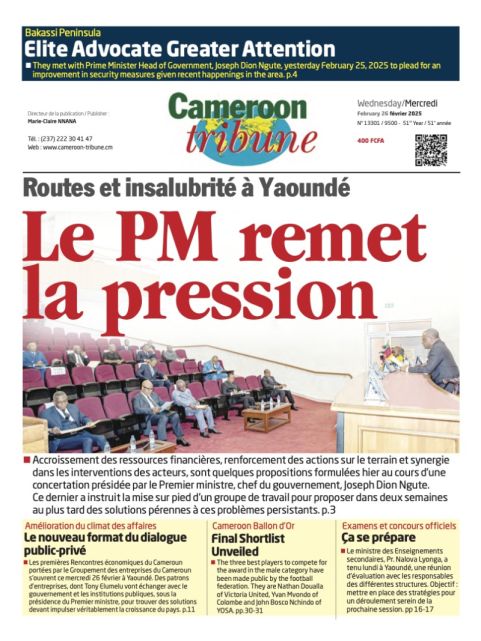Components of Effective Execution
- Par LUKONG Pius NYUYLIME
- 05 janv. 2021 11:49
- 0 Likes
The clock has started ticking as the 2021 State budget otherwise known as the Finance Law effectively goes operational. A number of issues usually come into play when talking about State budget. The first one is to identify the issues at stake that need to be tackled for the specific financial year; the second is how much will it cost to finance what has been identified; the third is from where will the finances come and the last and perhaps one of the most important is how to use the revenue raised against those challenges. All these are very serious and pertinent questions government tries to grapple with every year in order to better achieve its development goal. The initial stages have been tackled, that of figuring out issues at stake and stating clearly how the revenue will be raised. Now we are into a more challenging phase, most challenging because of its practical nature; the execution of the budget. This is the moment of truth where stakeholders must transform what initially appeared as dream into reality.
The State budget for 2021, it should be recalled stands at FCFA 4,865.2 billion against the revised 2020 budget of FCFA 4,632.7 indicating a five per cent increase. All minds are now turned towards seeing whether or not the political, economic, social and cultural projects government had streamlined for execution this financial year will effectively be achieved. This entails mobilizing all those involved in managing the series of projects for this year and ensuring that they effectively get to work. These include the various departments charged with raising revenue and those tasked with using the money raise.
Actors must put in some seriousness if the State budget must be executed effectively. The trouble with budgetary management in this country has most of the time hinged on the bureaucratic way of doing things. Many projects are known to be attributed for execution...
Cet article complet est réservé aux abonnés
Déjà abonné ? Identifiez-vous >
Accédez en illimité à Cameroon Tribune Digital à partir de 26250 FCFA
Je M'abonne1 minute suffit pour vous abonner à Cameroon Tribune Digital !
- Votre numéro spécial cameroon-tribune en version numérique
- Des encarts
- Des appels d'offres exclusives
- D'avant-première (accès 24h avant la publication)
- Des éditions consultables sur tous supports (smartphone, tablettes, PC)











Commentaires